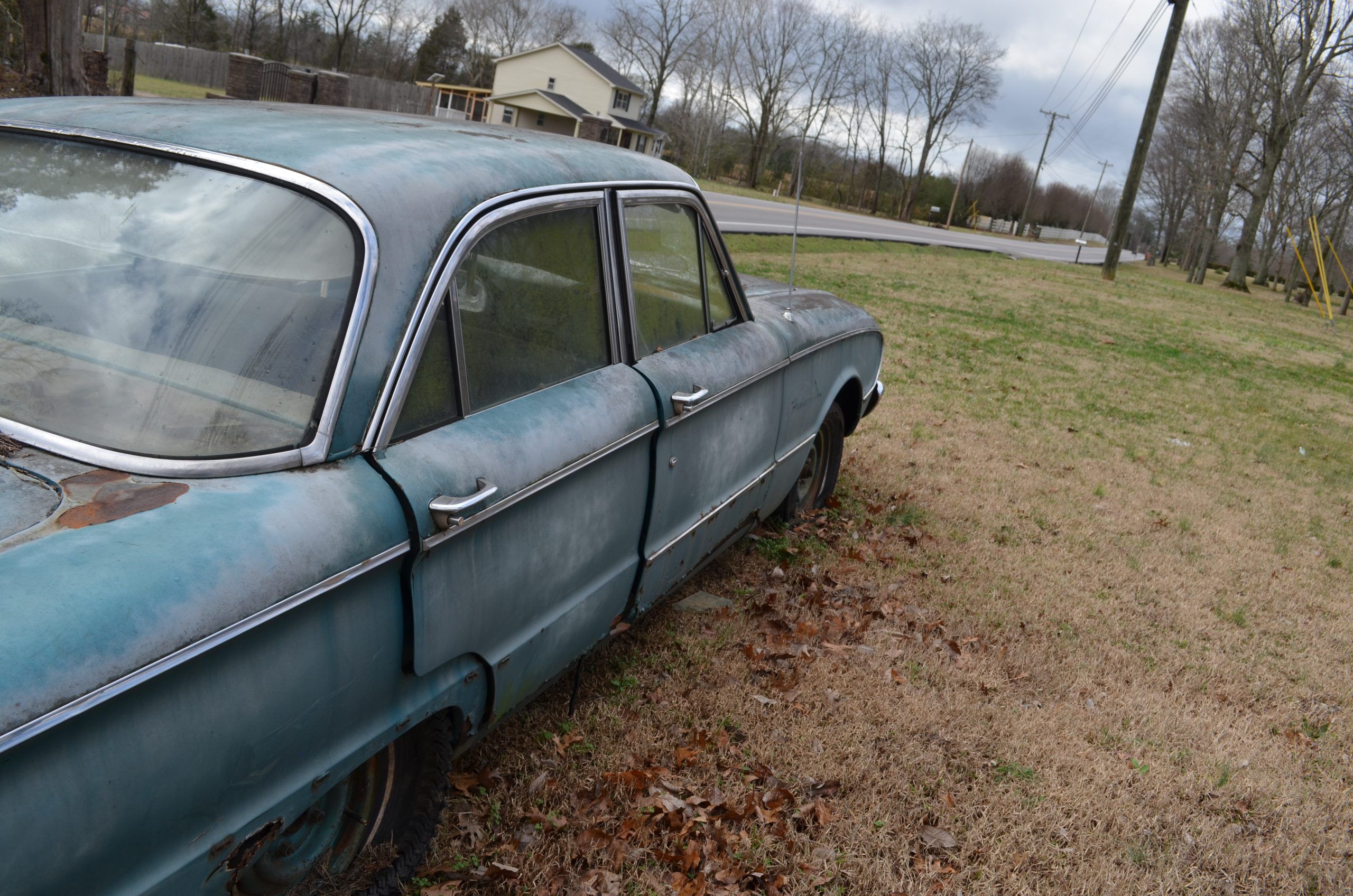Poetry
An Elegy to Waterproof Mascara
Don’t cry, they tell us.
But if you must,
be sure to look pretty doing it.
Emotional discretion now comes in a tube
so you can paint on indestructibly perfect coats,
little gatekeepers to lock away the evidence that you cried.
And should you let it out,
you risk confining yourself to the caricature of the Crying Girl,
(Streaky-faced, probably sitting in a bathtub somewhere).
Because as everyone knows, there is a fine line between
Sentimental
and
Emotional wreck.
But moderation was never my strong suit.
I am a floodgate and never a trickle:
a saltwater plumbing problem to be solved.
In airports,
during movies.
And, God forbid, even funerals –
“Don’t cry so much,”
says my grandmother’s oldest friend, half kindly, half fiercely,
pulling me to her chest to muffle the sound of my grief.
Because pain should only ever leak from us, not pour.
Because an open wound cannot possibly be worn with dignity.
Is it any coincidence that the words “hysterical” and “hysterectomy”
have the same Greek root?
For every woman who wears her heart on her sleeve,
there is someone handing her waterproof mascara.
I think about those ladies in the ancient world,
how they used to weep for hours on end,
and I wonder why we ever stopped.
Who caged those oceans inside us, decided
they were not our stories to tell?
So today, I am twisting the lid back on the tube,
nailing it shut and lowering it into the ground,
I am pulling the cork off my bottled up tears
and using them to water the roses I will lay
on the grave of every heartache I have ever buried:
Every raw emotion I have ever apologized for.
Sunbathing in Venice
Clouds have never moved
more quickly than here
under the blaze.
A child’s laugh has never fallen
on softer ears than mine, now.
I watch her spoon pasta,
painting red her lace bib.
The water never cooler,
as condensation on a glass
of spiked lemonade.
Stone never felt refreshing
on bare feet, as here in this city.
And I miss you.
Your hands were rough,
But they made sturdy dreamcatchers,
pointing out shapes in the clouds.
I imagine the father you would have made,
better than mine, I now know.
But I didn’t want two girls and a boy,
even if I could’ve given them to you.
Our martini nights so quickly turned
sour, like the salted limes on glass,
It’s funny how we called it passion.
Resident Itinerant Drifter, With Apologies to the Yearning in my Chest for a Place to Hang my Hat
- Impostor’s Summer
I brought no pictures to hang on the wall.
Before I left, I cut my hair
and saw for the first time a woman whose body
I could stand to walk around in, a woman sure
of herself, so I know I’m not the girl in the pictures.
I try to draw cold, hard lines between here and there.
Besides, I don’t need the pictures:
the woods outside my window are my father,
the moonlight my mother, the books I read my siblings.
In the sticky heat of July afternoon, caught
in a rare moment of levity, I pen a letter
and send it home — no reply.
I am no bird — wayfarer, woodland creature,
woman I am, nothing more, or less —
and no net ensnares me. But I want to float
up and out of myself and into the song
of the bluebird. Tu-a-wee.
I paint a picture for my mother, the real one,
and she hangs it in the bathroom in the house
I grew up in. Home? No, that isn’t it, at all.
- Autumn Untethering
Thanksgiving is late this year. The trees
are nearly bare
except for the maples
burning a full, deep red
like the flame of a phoenix before it turns
to ashes,
and the crumbling stretch highway to my parents’ house
is a tired, sweeping immensity that I can spread myself out across
with no definite shape until I reach the horizon
and then some
or disappear entirely, unraveling like the seam
of a well-worn sweater,
trailing all the places I’ve been.
At supper, I am either full or starving depending on who asks,
and we sit in rigid chairs and try to not let ourselves spill into each other.
I am searching for some semblance of settling but there are only corridors
to the spaces in between the spaces in between, pieces of myself kept in boxes
lining the hallways — for continency’s sake, in case the next rendering of myself
doesn’t pan out.
One of these days, I’ll have to take them with me when I go, pile every last one into the trunk of my car and drive back down the highway to God knows where—I try to draw cold, hard lines between here and there.
Everything around me is dying
or making itself scarce,
shedding
the pieces that won’t make it through winter.
- T.S. Eliot in January
If I go out bare-skinned, sleepwalking into the morning,
the bite of the air feels almost like being held, almost,
if I stand stock-still and clench my fists, cleave
to January’s shaky breath, clutching it between my fingers.
“My whole life I’ve been lonely,”
said to no one in particular,
and I am answered with the echoing steps
of my own feet on stone streets. I keep my eyes fixed there—
to look another in the eyes is to admit to the vacancy
of my own gaze (to have squeezed the universe into a ball,
to roll it towards some overwhelming question).
At six years old, maybe seven, I’d walk beside the fence during recess, following it back and forth, eyes fixed before my feet, humming. Would it have been worthwhile to have kept my gaze forward, to face the weight of the eyes on me? I try to draw cold, hard lines between here and there.
On my birthday in an empty house, I sit at the piano
and pick at a melody I thought I’d buried.
(That corpse you planted last year in your garden, /has it begun to sprout?)
Winter has a way of smothering the bones
so that by its end they’re almost like that of a bird —
hollow and frail, brittle under pressure but apt for flight.
- Spring — or Recurring Apocalypses
While it’s still windy, before the heavy heat comes,
I linger a while longer in the bright quiet of the morning
to knock the frost off the words I buried alive last year.
(Prayers? Confessions? No, prospective longings
waiting to take root).
I dreamt I was in Eden the day before the world
fell apart. Mine was the first sin, a temptation
not of taste or knowledge but of ownership,
the gripping illusion that I could claim a garden
as my own, to draw cold, hard lines between here and there.
The pines are teetering, laughing and screaming
in the wind, and I wish I was one of them.
I could stay here, plant myself on the forest floor
and see what takes. But I am in the business of vagrancy.
- Incarnation
The last summer before I move away, I am watching myself
from the outside, putting all the people I’ve been into neatly packed boxes.
There are no cold, hard lines, only streams of water flowing into each other.
I pack the pictures, trade something nebulous
for the palpability of the strange tragedy of home
and the warm advent of body.
Stretch Marks and Ash
The summer before college
My mother invited me to her house for tea,
she said,
but I know she only drinks whiskey.
My tires hit the gravel,
sliding down the narrow driveway.
The whirlpool in my stomach spinning,
something more than tea is waiting,
I know
I turn my key in the doorknob,
almost surprised it still fits.
I call her name,
I haven’t said “mom” since the day I left.
No response echoes back,
but I know where she’ll be.
I step onto the back porch
and there a cigarette,
circling fumes escaping its head.
At first, I think,
nothing has changed
but my eyes travel down.
Her growing belly,
stretching out from her blouse,
contrasting the rest of her slim frame.
“She’s the size of an avocado”
I watch a ring of smoke.
“I’m due in February”
I remain frozen, entranced.
“She’ll be named after your grandmother”
Her eyes beg for some response.
All I can find is the cigarette,
Watching as she takes another puff
Another child born with lungs of ash
She draws another breath

Bricolage
My mom reconstructed our lives from junk.
Unbleached cardboard Orisha beaded masks,
Glass-shard mosaics of proud Mary’s face,
A twisted crown of bottle caps and barbed wire,
Found relics, littered our tar-paper house,
Each objet d’art, a fetish, meant to stave
The shame of being poor. We ate, each night,
On painted plates of resurrecting suns.
She formed so much what others tossed away.
Now I scrounge through virtu and bric-a-brac,
The scattered trifles of remembrances,
To find her, traceless, gone. My soul sets bare.
Unfit to curate memory, I house
No rags, no cracked cups, no heart, fit for pawn.
Goodwill
The re-racked tops, bottoms, frocks beggared us.
Remember, bodies, once, possessed this cloth,
My mom reminisced. When we took the bus
Past bodegas, the hot-press mill, the swath
of storefront churches, tarpapered shotguns,
A land of corrupting rust, engorged moth,
To purchase, for the next fall, clothes the nuns
Found fitting, we, too, made out like a thief
At night. She dressed me like the rich man’s sons,
And gave herself, yet attained no relief,
Cried out, “Come, Jesus!,” where, then, was the Lord?
Without memory, one can have no grief.
Now, she is dead. My loss, my pain, I hoard
Indulgence even beggars can afford.

